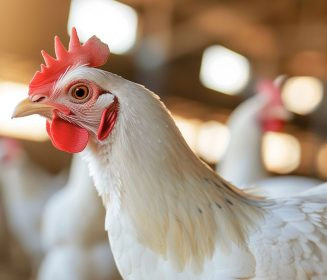
In a concerning turn of events, a teenager from British Columbia has been diagnosed with avian influenza, marking a rare but significant case in North America. This incident has sparked a renewed discussion on the potential risks of zoonotic diseases and the need for vigilance in public health.
The young patient, whose identity remains confidential, initially presented with mild symptoms that rapidly worsened, leading to critical respiratory and kidney issues. The severity of the case prompted immediate and intensive medical care, including the use of mechanical ventilation and ECMO (extracorporeal membrane oxygenation), a form of life support that provides heart-lung bypass for those whose heart or lungs are severely compromised.
Health authorities have been tight-lipped about the exact details, but it's understood that the source of infection might have been domestic poultry, which the teen had contact with. This case is under scrutiny because it's one of the few where H5N1, the strain of bird flu involved, has shown mutations that could suggest an adaptation to humans, although person-to-person transmission hasn't been documented in this incident.
Dr. Isaac Bogoch, an infectious diseases specialist, mentioned in an interview that this case doesn't necessarily change what we know about avian flu but does emphasize the importance of monitoring and research. "Every case like this is a reminder of the ever-present risk that these viruses pose," he said.
The health community is now on high alert, emphasizing the importance of biosecurity measures on farms, public awareness, and preparedness for potential outbreaks. This includes recommendations for avoiding contact with sick or dead birds and ensuring poultry products are cooked properly.
This case, while isolated, serves as a sobering reminder of how zoonotic diseases can leap from animals to humans, potentially sparking broader health concerns if not managed properly. It's a call to action for both the public and health officials in Zimbabwe and around the globe to remain vigilant, informed, and proactive in our approach to zoonotic disease prevention.
As we watch this situation unfold in Canada, it's a moment for Zimbabwe to reflect on our own preparedness for similar health threats. Ensuring robust veterinary services, public health education, and a swift response mechanism could be crucial in preventing or mitigating the impact of such diseases should they emerge here.
Join WhatsApp Channel
Stay connected with the latest news, updates, and exclusive content by joining our WhatsApp channel! Join now and never miss an important update from DailyPress!
 DailyPress
DailyPress





